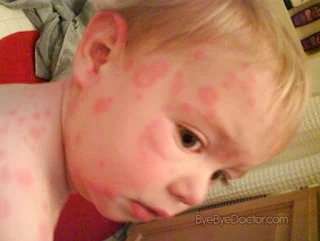<!-- Google tag (gtag.js) -->
<script async src="https://www.googletagmanager.com/gtag/js?id=G-XDGJVZXVQ4"></script> <script> window.dataLayer = window.dataLayer || []; function gtag(){dataLayer.push(arguments);} gtag('js', new Date()); gtag('config', 'G-XDGJVZXVQ4'); </script>Smileband supports 10 charitable organisations that support across the UK and the world, 222 News look in to researched information that is based around news and health related subjects, by entering your e mail and subscribing and verifying it in your e mail box, you are helping support 10 charities that we give money too. Also if a person’s information has been posted or shared and they don’t like it please contact us and we will have it removed, please follow our News.
Friday, 9 March 2018
Smileband health topics
Thursday, 8 March 2018
Smileband general news
<!-- Google tag (gtag.js) -->
<script async src="https://www.googletagmanager.com/gtag/js?id=G-XDGJVZXVQ4"></script> <script> window.dataLayer = window.dataLayer || []; function gtag(){dataLayer.push(arguments);} gtag('js', new Date()); gtag('config', 'G-XDGJVZXVQ4'); </script>Smileband general news
<!-- Google tag (gtag.js) -->
<script async src="https://www.googletagmanager.com/gtag/js?id=G-XDGJVZXVQ4"></script> <script> window.dataLayer = window.dataLayer || []; function gtag(){dataLayer.push(arguments);} gtag('js', new Date()); gtag('config', 'G-XDGJVZXVQ4'); </script>Smileband health topics
<!-- Google tag (gtag.js) -->
<script async src="https://www.googletagmanager.com/gtag/js?id=G-XDGJVZXVQ4"></script> <script> window.dataLayer = window.dataLayer || []; function gtag(){dataLayer.push(arguments);} gtag('js', new Date()); gtag('config', 'G-XDGJVZXVQ4'); </script>Wednesday, 7 March 2018
Smileband general news
This article was written by nodongo samba Sylla,
<!-- Google tag (gtag.js) -->
<script async src="https://www.googletagmanager.com/gtag/js?id=G-XDGJVZXVQ4"></script> <script> window.dataLayer = window.dataLayer || []; function gtag(){dataLayer.push(arguments);} gtag('js', new Date()); gtag('config', 'G-XDGJVZXVQ4'); </script>Smileband health topics
<!-- Google tag (gtag.js) -->
<script async src="https://www.googletagmanager.com/gtag/js?id=G-XDGJVZXVQ4"></script> <script> window.dataLayer = window.dataLayer || []; function gtag(){dataLayer.push(arguments);} gtag('js', new Date()); gtag('config', 'G-XDGJVZXVQ4'); </script>Smileband health topics
Reduce contact with the triatomine bugs by improving housing conditions and spraying insecticide.
Patients should be advised to not donate blood.
<!-- Google tag (gtag.js) -->
<script async src="https://www.googletagmanager.com/gtag/js?id=G-XDGJVZXVQ4"></script> <script> window.dataLayer = window.dataLayer || []; function gtag(){dataLayer.push(arguments);} gtag('js', new Date()); gtag('config', 'G-XDGJVZXVQ4'); </script>Monday, 5 March 2018
Smileband general news
Article by Sam greenhill,
<!-- Google tag (gtag.js) -->
<script async src="https://www.googletagmanager.com/gtag/js?id=G-XDGJVZXVQ4"></script> <script> window.dataLayer = window.dataLayer || []; function gtag(){dataLayer.push(arguments);} gtag('js', new Date()); gtag('config', 'G-XDGJVZXVQ4'); </script>Smileband general news
<!-- Google tag (gtag.js) -->
<script async src="https://www.googletagmanager.com/gtag/js?id=G-XDGJVZXVQ4"></script> <script> window.dataLayer = window.dataLayer || []; function gtag(){dataLayer.push(arguments);} gtag('js', new Date()); gtag('config', 'G-XDGJVZXVQ4'); </script>Smileband health topics
- fever
- runny nose
- headache
- "slapped cheek" rash on the face
- rash on rest of body
- polyarthropathy syndrome.
Transmission occurs through contact with respiratory secretions from an infected individual.
Healthcare providers can often diagnose fifth disease just by seeing "slapped cheek" rash on a patient's face.
Test*
|
Specimen
|
PCR
|
Whole Blood
|
IgG/IgM
Serology (IgM antibodies are detectable 2 weeks after exposure, IgG antibodies are usually created 18 to 24 days after exposure) |
Serum
|
<!-- Google tag (gtag.js) -->
<script async src="https://www.googletagmanager.com/gtag/js?id=G-XDGJVZXVQ4"></script> <script> window.dataLayer = window.dataLayer || []; function gtag(){dataLayer.push(arguments);} gtag('js', new Date()); gtag('config', 'G-XDGJVZXVQ4'); </script>Smileband News
Dear 222 News viewers, sponsored by smileband, A Berlin-based physician has been formally charged with the murder of 15 patients under his ...
-
NORMAL MOLES are common small brown spots or growths on the skin that appear in the first few decades of life in almost everyone. Th...
-
T he White House has discussed using experimental microwave missiles against North Korea to disable Kim jong-un nukes, it has been r...
-
Smileband is bring a new health product to society as we care for people health due to getting infections and suffering from bad health issu...





